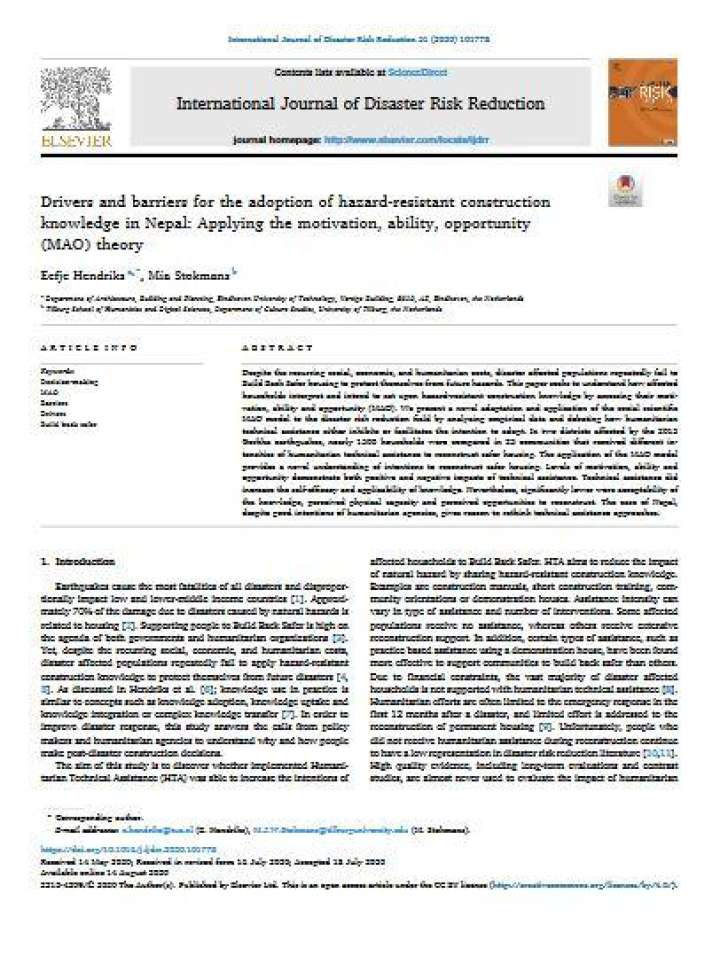Drivers and barriers for the adoption of hazard-resistant construction knowledge in Nepal: Applying the motivation, ability, opportunity (MAO) theory
This paper seeks to understand how affected households interpret and intend to act upon hazard-resistant construction knowledge by assessing their motivation, ability and opportunity (MAO). We present a novel adaptation and application of the social scientific MAO model to the disaster risk reduction field by analyzing empirical data and debating how humanitarian technical assistance either inhibits or facilitates the intention to adopt.
The study points to a need to more closely examine the methods employed in communication and motivations of households. Humanitarian and governmental agencies, especially those in Nepal, could think beyond the short-term application of knowledge and seek to enhance those aspects that affected households perceive as barriers in their reconstruction.
Explore further
